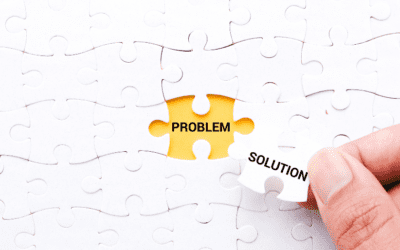It must seem to the founder of a young company like the most natural move to make, an absolute no-brainer. Why not take on the product management role myself? After all, the product was my idea (or at least partly my idea), and I know our target personas as well as anyone. Also, considering many entrepreneurs come from a product management background, there’s a decent chance the founder herself has experience as a product manager. Another reason it makes perfect sense to take on this role, right?
But as we learned with the Ford Edsel and the movie Speed 2, just because an idea sounds logical doesn’t mean it will play out successfully. And although there can be a couple of legitimate reasons for a founder to act as the company’s product manager — reasons we’ll discuss below — there are many more reasons to avoid this approach.
Before we walk through our specific arguments against a founder also doing double duty as product manager, here’s our bottom line:
When a company’s product manager is also the founder or CEO, that company’s products are often at risk of being developed the wrong way, for the wrong reasons, and with few people — perhaps nobody — within the company able to correct the problem.
So, why shouldn’t a founder or CEO also be product manager? Here’s why.
1. A founder generally won’t be as objective about the product — and that can lead to all sorts of problems.
When a founder launches a company, he or she will often have a very clear — and idealized — vision about what the product will look like, how it will perform, and why it will revolutionize the industry.
This enthusiasm and optimism will be valuable, even necessary, to help that entrepreneur navigate through all of the inevitable obstacles that will pop up in the path to getting that company off of the ground.
But here’s another inevitability in growing that young business: Product development will not be ideal (because it never is), and the company will need to make some difficult choices about the product. Resource constraints will demand that certain functionality be deprioritized so the team can deliver a minimum viable product for launch. Investors will demand still further feature stripping to enable a quicker release date. And so on.
These are the painful but necessary decisions a product manager has to make. And that product manager will need calm objectivity to make the right calls. But just how calm and objective can a founder be in these moments — given that the product is his “baby,” after all?
When a young company has to make tough calls in the product’s development to get something to the market, having an employee with the title Founder/Product Manager can be dangerous.
Such a product manager can become so paralyzed with uncertainty about which functionality to prioritize and which to push to a future date that the product’s progress can be stalled. Or, just as concerning, the decisions about what to prioritize will be based not on evidence or data but on gut instinct alone (more on this later).
2. A founder/product manager who makes suggestions wearing her PM hat will always be obeyed — because she also wears the founder hat.
Imagine: A product manager calls a meeting with her executive stakeholders midway through the product’s development to suggest a major deviation from the current strategic plan on the product roadmap. Imagine also that when the stakeholders ask why the PM wants to change strategy now and shift all development resources to a new plan, she simply says, “Because it sounds cool.”
In most cases, the stakeholders will shut this plan down before it begins. And the product manager in this scenario will be lucky to keep her job.
But now imagine that the PM is also the company’s founder, and perhaps its CEO. She won’t call that meeting with the stakeholder team — she is the stakeholder team. Instead, she’ll call the meeting to “suggest” her idea to product marketing, and possibly to sales and development. And guess what? No one will shut this idea down, even if she gives the same unsatisfying answer — “because it sounds cool” — to the question of why.
This Founder/PM might well be acting entirely in good faith as a product manager — simply suggesting an idea to change direction and hoping for honest feedback and brainstorming from her teams. But in most cases that simply won’t matter, because those teams also know that even if she’s sitting in that meeting strictly as a product manager, this person is also the boss. And everyone in product marketing, sales and development will also be thinking about their paychecks.
So when the product manager also runs the company, there will be fewer (and possibly no) mechanisms to stop bad ideas from being implemented. And because many people across the organization will be afraid to raise their hand in such moments, a Founder/PM with even the best of intentions will never know that he is the reason the product is failing.
A Founder/Product Manager is like an enormous but friendly pit bull: He means well but doesn’t know his own strength. And every person who ends up in the room playing with him is secretly terrified that at any moment he’ll rip them to shreds.
3. A company with a CEO for a product manager has neither a true CEO, nor a true product manager.
Of all of the reasons to keep your company’s founder/CEO and product management roles separate, this probably has the most far-reaching effect on the company. So even if the two previous reasons didn’t convince you, we hope this one will.
Product management is a full-time job. Indeed, if you’ve spent any time as a product manager yourself, you know it is actually more than a full-time job. That’s why we write so many posts about how to more effectively manage all of your responsibilities as a PM — like this post about product management planning, and this one about handling your product management priorities.
A product manager needs to be frequently overseeing from all vantage points everything that can affect her product — opportunities, threats, real-world data, company resource levels, sales needs, marketing needs, market perception of her product, internal executive support, etc. This requires a full-time, dedicated professional whose sole focus is on owning responsibility for her company’s product.
And that will be effectively impossible if the same person is also focused on ownership for managing a board of investors, overseeing her company’s HR activity, managing the heads of departments such as sales or engineering, and taking on all of the other day-to-day responsibilities of running a business.
Simply put, the founder/CEO role is, just like the product management role, more than a full-time job.
So, given that both of these roles require all of a person’s attention and mental energy — not to mention the fact that these roles have obvious conflicts with one another — we believe it is ill-advised to allow the same person to assume both roles simultaneously.
Are there times when the founder can be the product manager?
As we stated in the introduction, there are certain scenarios under which it can make sense for a founder to act as the company’s product manager. We’ve listed them below.
Because we’re generally opposed to a company having a single person fill both of these roles, however, we would also highly advise that if your company chooses to allow a founder to step into the PM role even under the conditions below, you call your founder the “Acting Product Manager.” This way, you are making a statement that your company understands this dual role is not sustainable and won’t be permanent. Trust us — the rest of your team will breathe more easily.
With that said, here are the two scenarios where a founder can also be the product manager.
1. The company is just getting off the ground and can’t afford a full-time product manager.
When the Google founders were first getting their search engine/advertising engine platform off of the ground, presumably they were also functioning as product managers. In those early days, this made sense.
But eventually, of course, Google grew into a large company, and managing all of the responsibilities of running a growing organization naturally precluded the co-founders from continuing to maintain total ownership of their products’ development.
We believe you should separate these two roles as soon as you reasonably can. Far before your company starts scaling with Google-like speed, you will need to decide: Am I going to run the company, or am I going to be a product manager?
2. The company is in between full-time PMs and someone needs to step in temporarily to fill the void.
This scenario is similar to the first one, but it can be one of the few times after your company has grown into a functioning business — with employees and an office and maybe a ping pong table — where it might make sense for a founder or other executive to step into the PM role, at least for a while.
If you lose a product manager, it can take time to find a replacement PM who is strong enough to satisfy your company’s needs. Indeed, because product management is such a pivotal role in a company, and requires such a complex mix of hard-to-find skills, it can be one of the most difficult positions to fill properly.
With that in mind, if your company finds itself between product managers, it might make sense for a CEO or other executive to serve as “acting product manager” while you slowly and deliberately seek out the best possible replacement PM. Indeed, this can often make more sense than simply filling your vacant PM position as quickly as possible — because a mediocre or subpar product manager can do more harm to a company than having no product manager.
And that brings us back to our original argument for this post. Your company simply cannot afford to have a subpar product manager — not if you hope to deliver products to the market, on time and on budget, that resonate with customers and generate revenue. For this reason, in most cases you cannot have a product manager who is also doing double duty with a second full-time job — like Founder/CEO.
Agree? Disagree? Have you had experiences with a founder/product manager? Please share them in the comments section.



